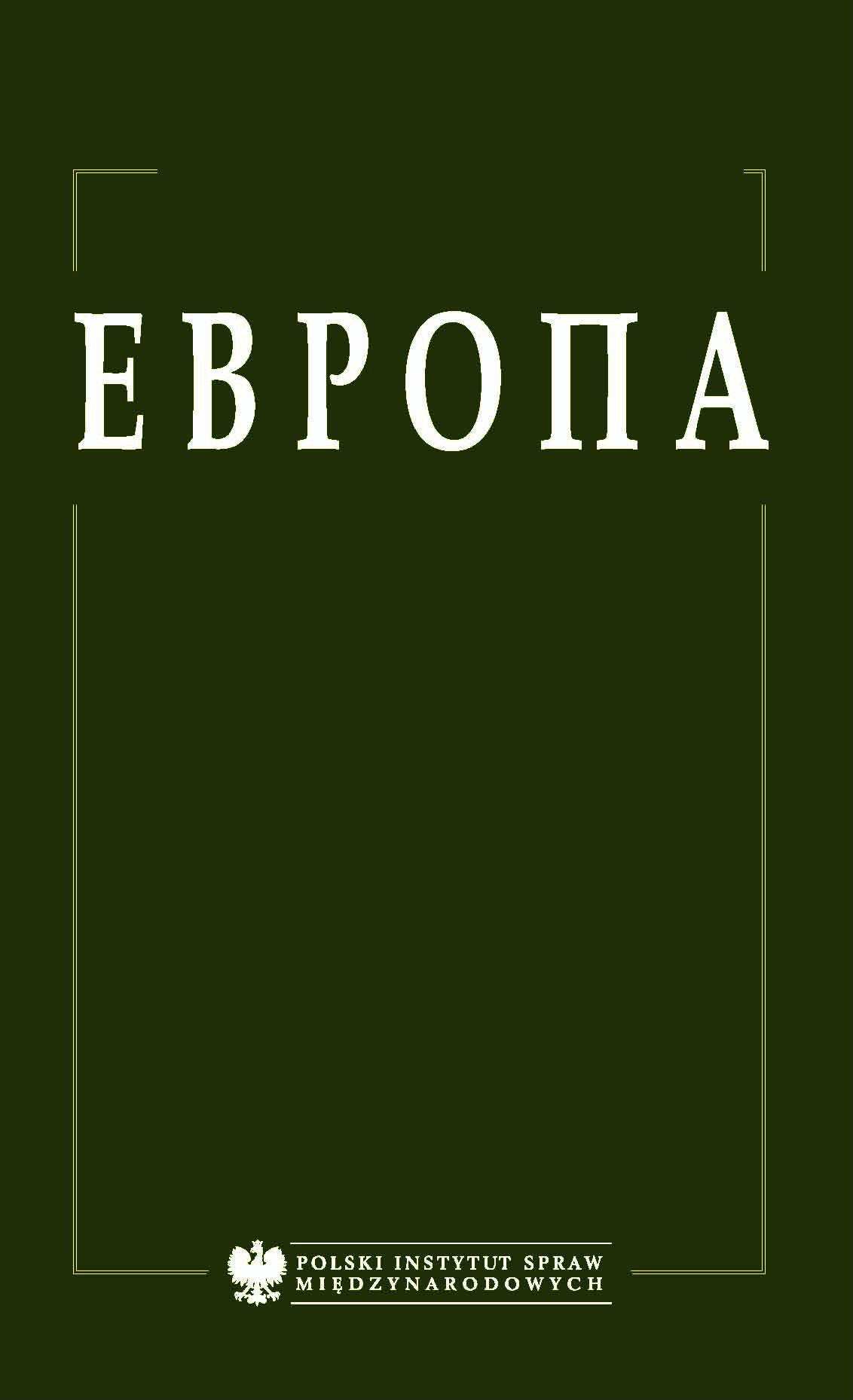

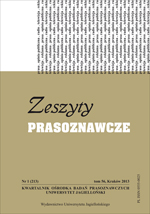
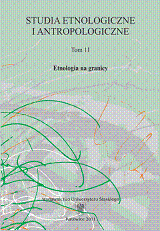
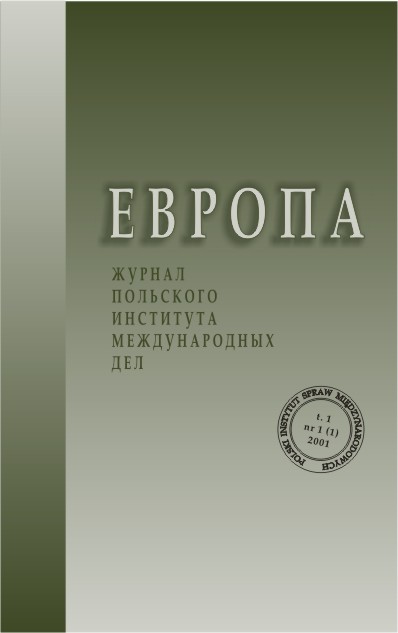
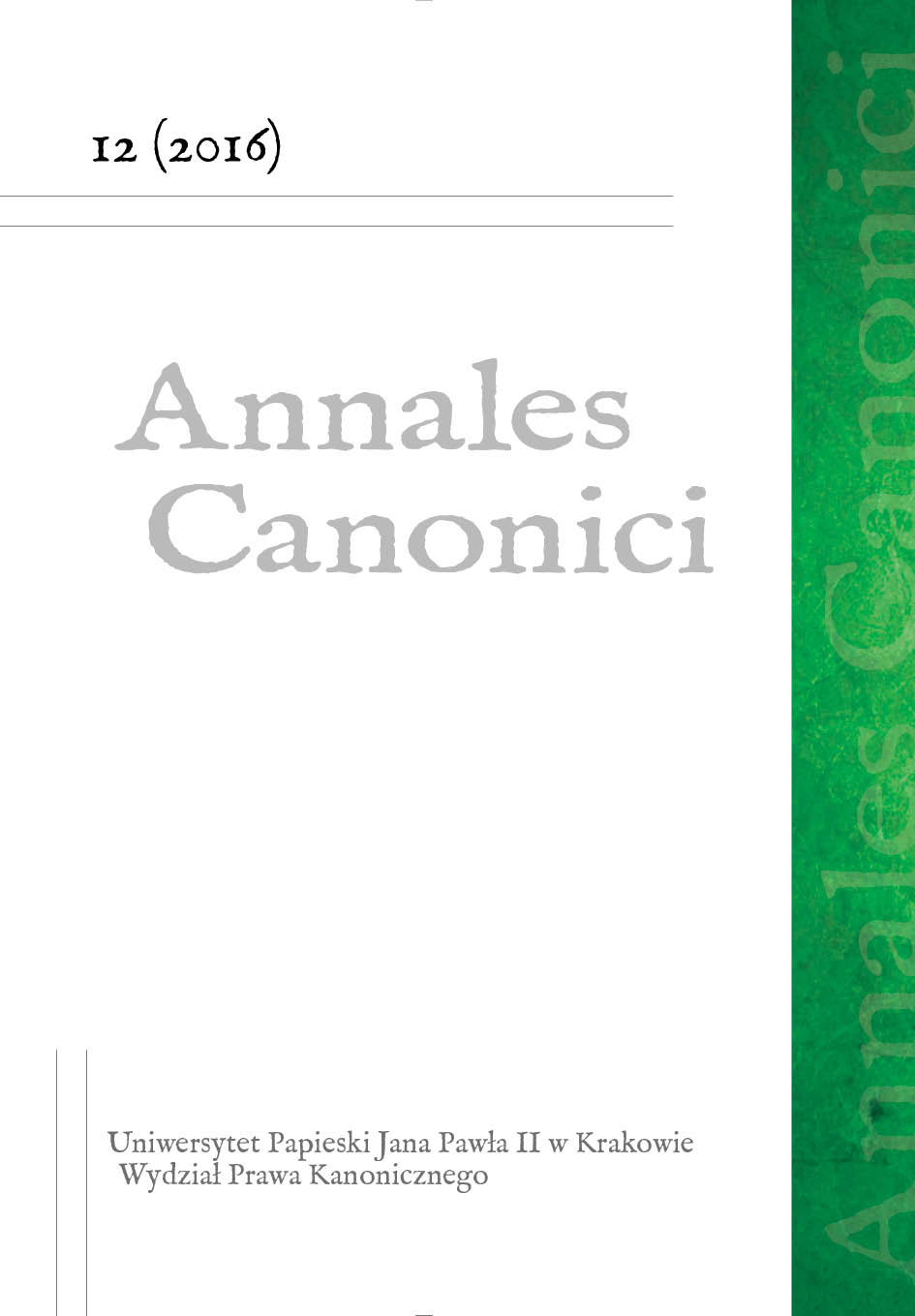
Keywords: pogrzeb katolicki; donacja zwłok; pochówek; szczątki ludzkie
Inspiracją dla artykułu stało się pytanie o możliwość urządzenia katolickiego pogrzebu kosmyka włosów osoby, która przekazała swoje ciało na potrzeby nauki. Autor po przedsta- wieniu przepisów prawa polskiego oraz wskazań bioetycznych dotyczących donacji ciała i po analizie przepisów prawa polskiego i wskazań Stolicy Apostolskiej dotyczących zasad postępowania ze szczątkami ludzkimi, opowiada się przeciwko urządzaniu symbolicznych pogrzebów ludzkich szczątków. Osoba przekazująca swoje ciało do celów badawczych i dy- daktycznych powinna zastrzec sobie sprawienie katolickiego pogrzebu po wykorzystaniu zwłok, a instytucja medyczna powinna taki pogrzeb zapewnić.
More...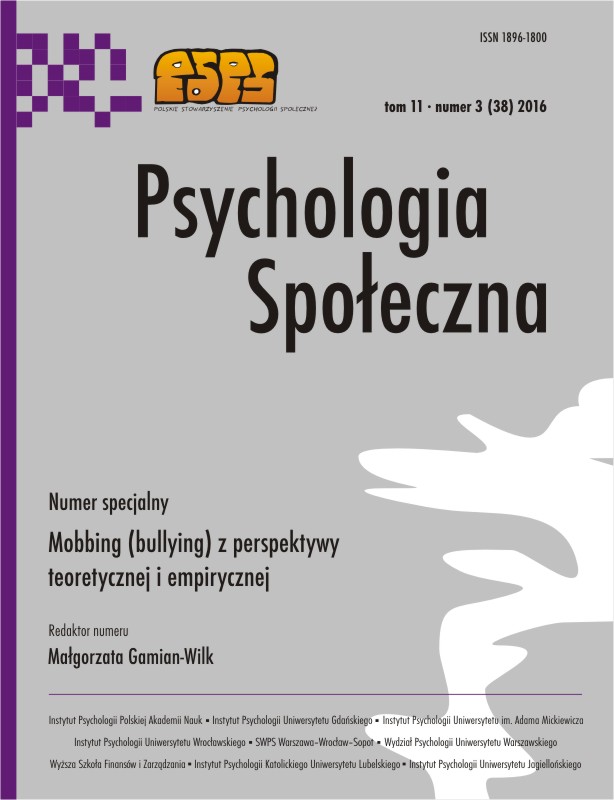
Keywords: mobbing; Machiavellianism; organizational culture
The article discusses individual and organizational determinants of mobbing. The hypotheses tested link mobbing behaviours with Machiavellianism and characteristics of organizational culture, identified by Cameron and Quinn. Assessment of mobbing was carried out from the perspective of a perpetrator, a bystander, and a victim. Organizational culture characteristics were assessed by the participants. The study sample included 120 people. The analyses showed a positive correlation between Machiavellianism and mobbing behaviours.Experiencing and witnessing acts of mobbing were positively correlated with the hierarchy culture and negatively with the culture of clan and adhocracy. Cluster analysis resulted in identifying three groups of people: those who describe the dominant culture at their workplace as “clan”, “hierarchy”, or “market”.A positive correlation between an employee’s Machiavellianism and the number of mobbing behaviours that a person reported was only found for people employed in organizations with the dominant hierarchy or (and) clan culture.
More...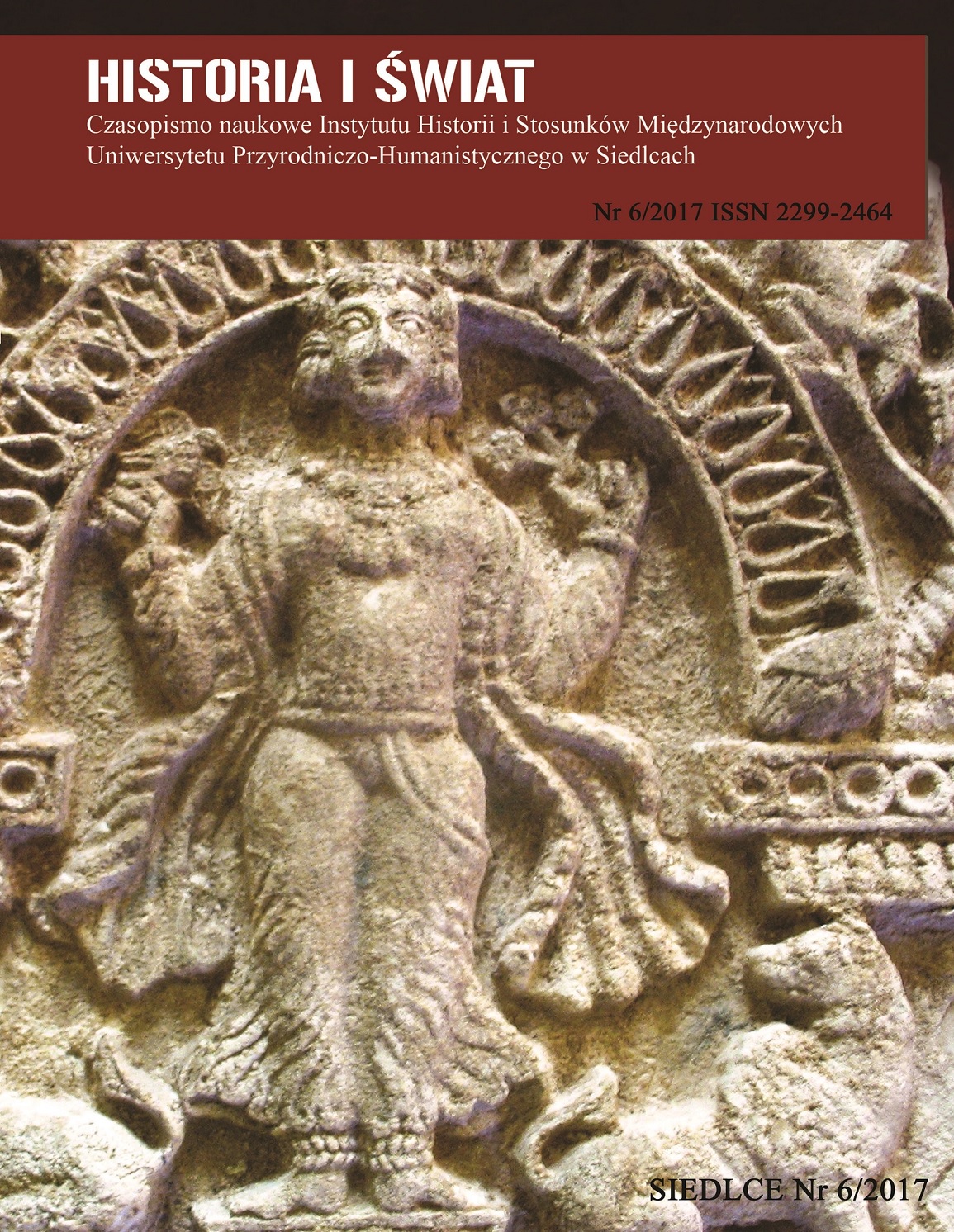
Keywords: history;
More...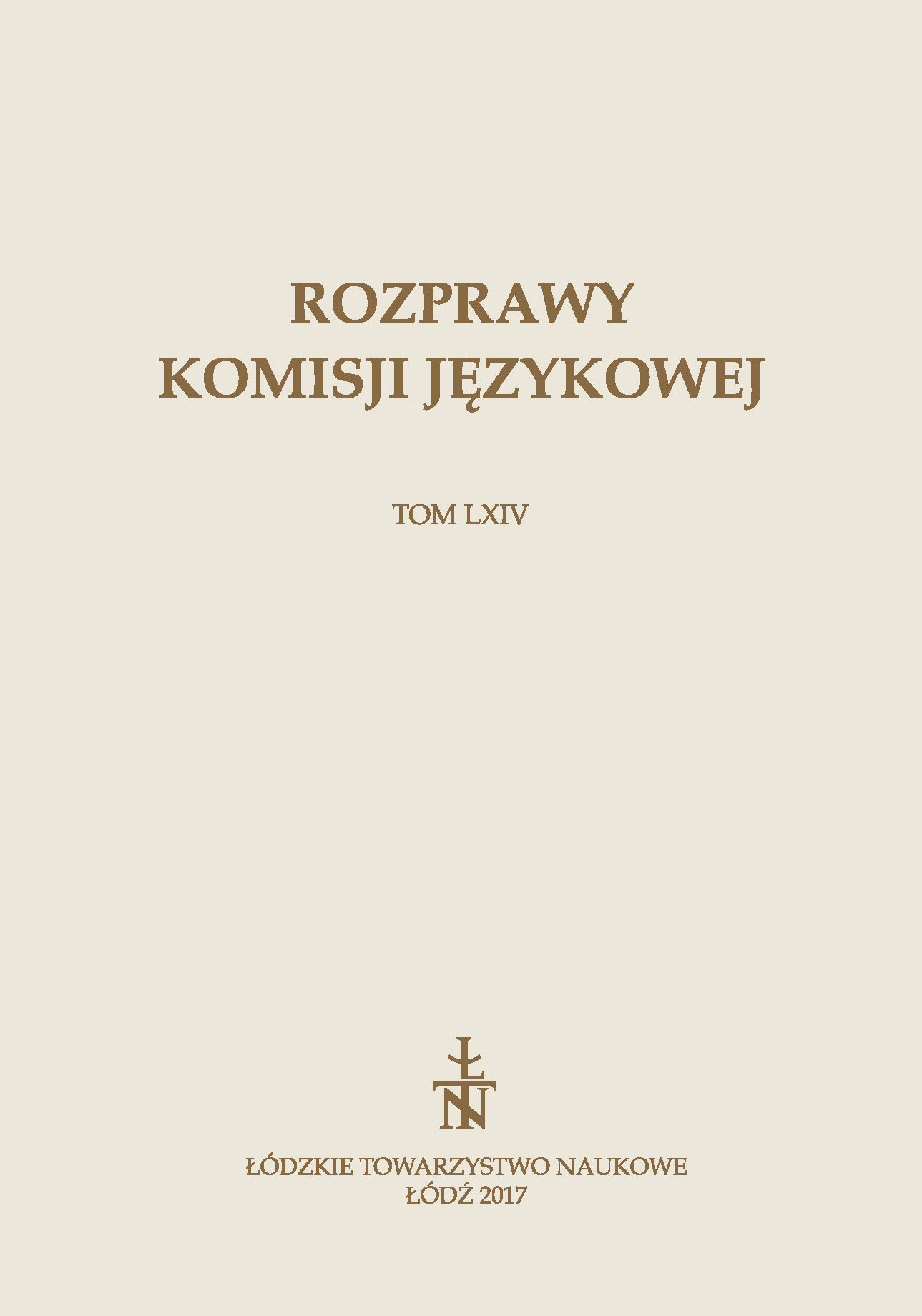
Keywords: Cooking; Silesian phraseology; paremiology (maxims);
Food, as one of the most important components of human existence, in addition to its primary function associated with satisfying hunger, is also essential element of culture and language – as evidenced by the numerous linguistic studies of that segment of the Polish vocabulary. The aim of this paper is to present and discuss selected Silesian collocations where the main component belongs to the wide category of cooking, understood as ready meals, the products of cookery or the entire process of preparing the food. Discussed idioms may include a component, which is the name of a specific dish, its ingredients, beverages, cookware or activities related to the preparation of dishes. The main purpose of this article is to show some segment of reality settled in dialectal phraseology and to identify functions performed by the expressive compounds containing in it scomposition the culinary names.
More...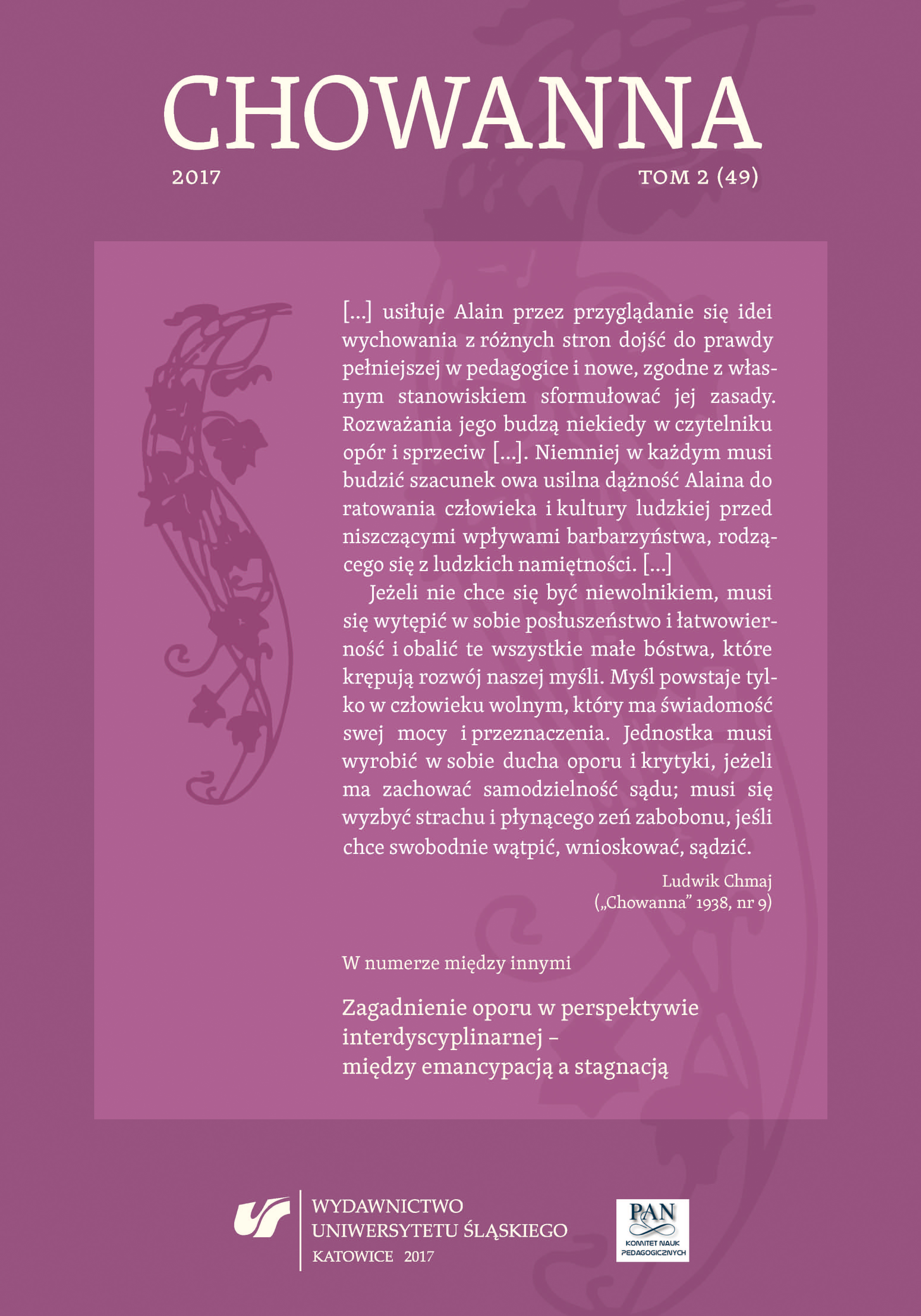
Keywords: counterculture; resistance; Romanticism; ecological movements; environmentalist milieu
In the article, a broad understanding of counterculture and countercultural resistance is proposed. The author suggests broadening the analyses of countercultural resistance with Romantic resistance and with ecological resistance movements. At the same time, he pays due attention in his analyses to the significance and manifestation of the “Romantic need.” The importance of the idea of nature is also emphasized – the idea which, in the author’s opinion, was taken over by Romantics from the esoteric tradition, only to be subsequently reinterpreted and continued in the 20th-century youth counterculture and in environmentalist milieu/environmentalist circles.
More...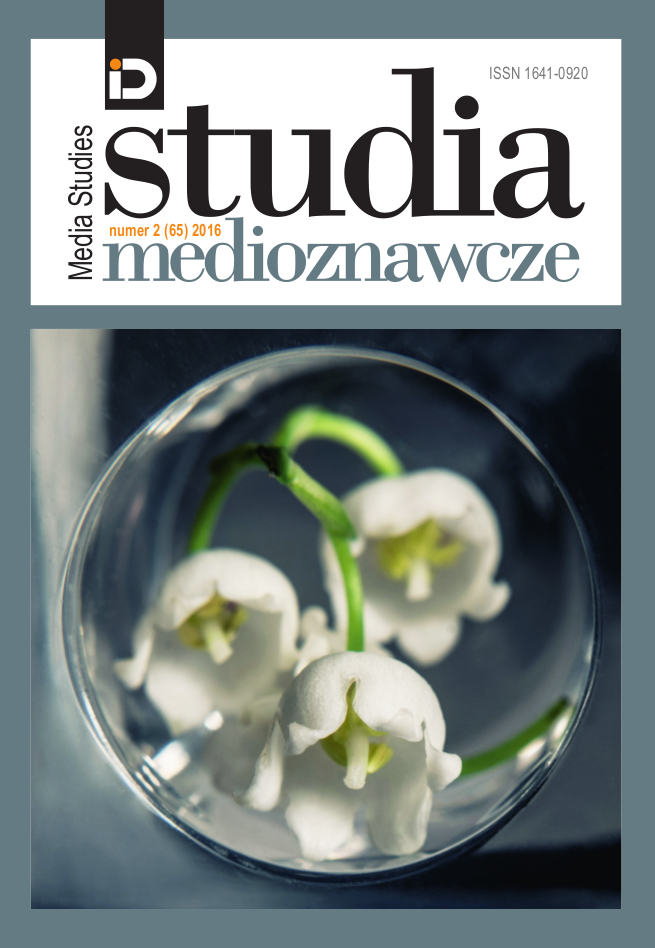
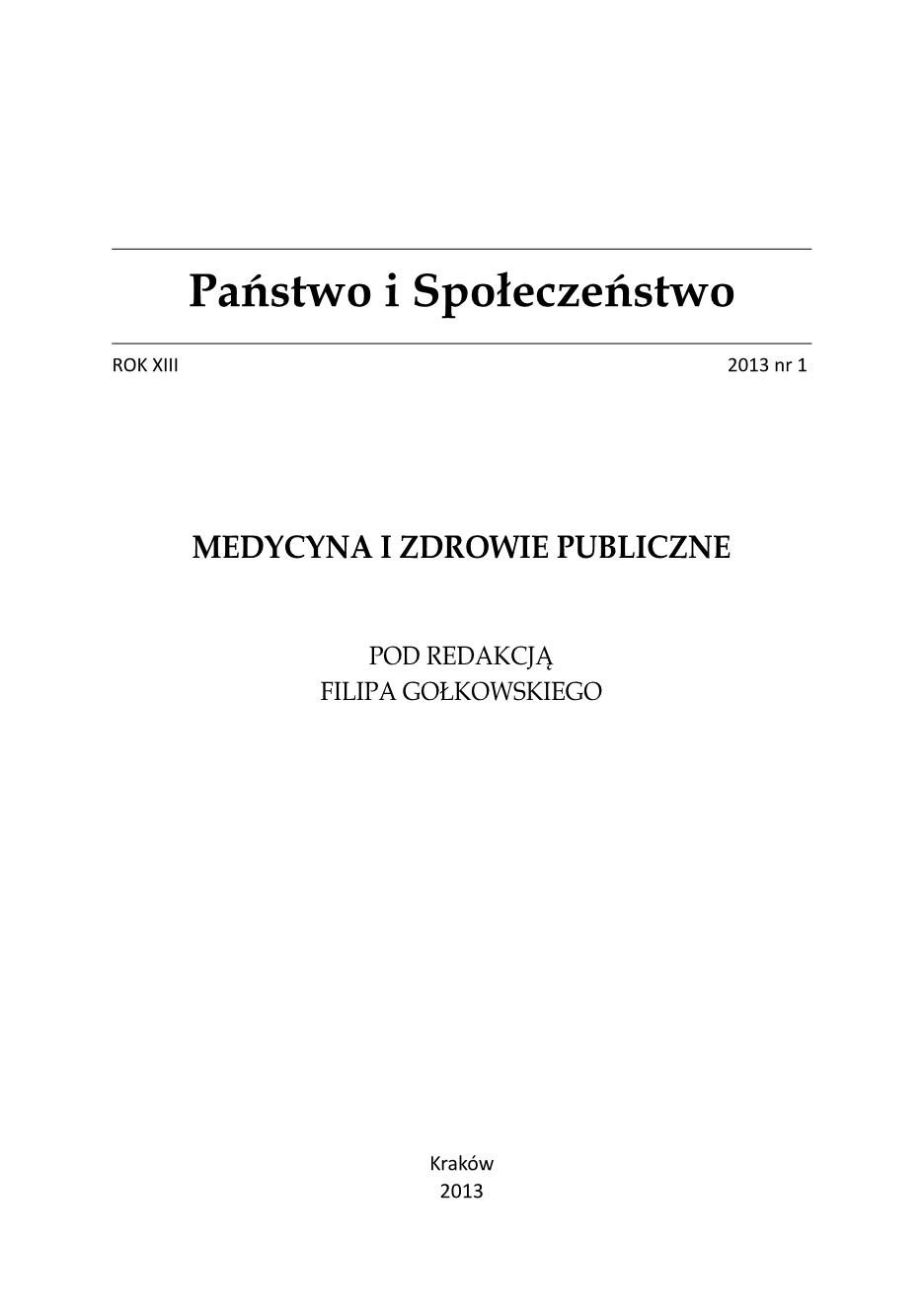
Keywords: self-determination; the right patient; the doctor’s duty;
Polish legislation and deontology at the beginning of the twentieth century, there was no question of any patient’s autonomy as a course of treatment. However, over the years, and most of all, a significant increase in patient awareness, the nature of health care has changed. The patient could increasingly decide whether to undergo a specific treatment or not. However, a number of questions how far such autonomy, limit patients’ freedom to decide about their lives, for example in the context of religious or worldview. Keep in mind that the patient’s self-determination is not always respected by the law. This includes procedures such as abortion (with some exceptions) and euthanasia, which are prohibited by law. On one hand, shall be submitted to the protection of human life over the will of the patient. On the other hand doctor who would take on the medical services without the consent of the patient, there would attack the life or health because it acts on behalf of those goods, but attacks the patient’s freedom, the right to decide on the state of their own people and their own destiny.
More...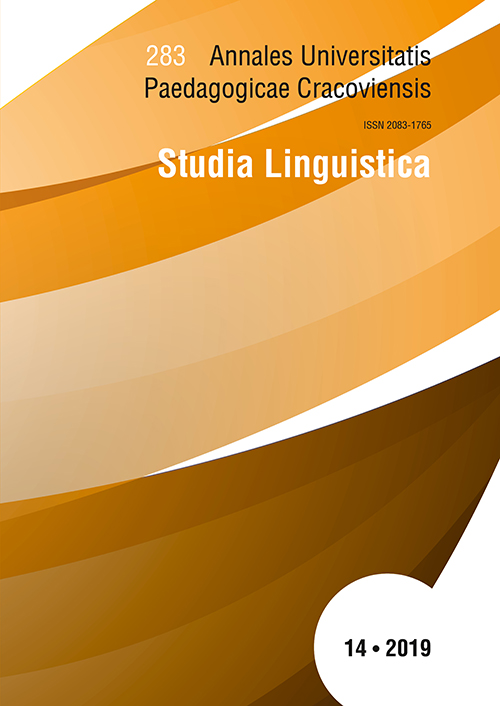
Keywords: historical grammar; inflexional changes; genetivus; dativus; possessiveness
1968 saw the publication of Józefa Kobylińska’s monograph entitled Rozwój form dopełniacza liczby pojedynczej rzeczowników rodzaju męskiego w języku polskim [The development of the forms of the genitive singular of masculine nouns in the Polish language]. Whoever intends to write about the Polish masculine genitive singular cannot neglect this publication, especially so because the selection of the endings -a and -u still poses a problem for modern Poles. The author of the article intends to supplement the fragments of the monograph which refer to the sources of the vacillations in the selection of endings. She puts forward a thesis that the source of the ending -u in the genitive was not only the 2nd declension but also the forms of the dative of the 1st declension. The author continues to ask, why the ending -a was preserved by animate nouns. It turns out that among all the functions of the genitive (genetivus qualitatis, genetivus partitivus, genetivus absolutus) Saxon genitive was the prevailing one; a noun in the genitive indicated the possessor, and the latter was a person, less frequently an animal. Possessive form expressed by the dative (cf. Bogu rodzica) was not pure, it frequently connoted an existential function.
More...![Iwona Bogucka, Tomasz Pietrzykowski, Etyka w administracji publicznej [LexisNexis, Warszawa 2009, pp. 271]](/api/image/getissuecoverimage?id=picture_2009_52785.png)
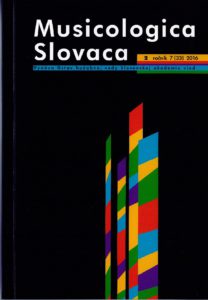
Review of: Grzegorz Joachimiak: Lutnia w klasztorze. Fenomen dworskiego instrumentu w kulturze Śląska XVII i XVIII wieku (= Musicologica Wratislaviensia 14). Wroclaw : Wydawnictwo Uniwersytetu Wrocławskiego, 2020, 349 s. ISBN: 978-83-229-3750-1
More...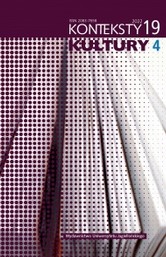
Keywords: Marek Krajewski; hate; hatred; people hating each other; hating the art; The invincibility of hatred;
Review of: Marek Krajewski, (Nie)nawidzenia. Świat przez nienawiść, Universitas, Kraków 2020, ss. 299
More...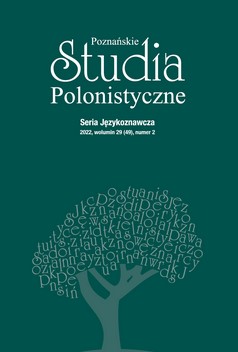
Keywords: language of Cieszyn sermons; language in the Lutheran Church;
Review of: Jana Raclavská, Urszula Kolber, Józef Szymeczek, Kazania cieszyńskie. O ich języku w kościele luterańskim, Kongres Polaków w Republice Czeskiej, Czeski Cieszyn 2022, ss. 311.
More...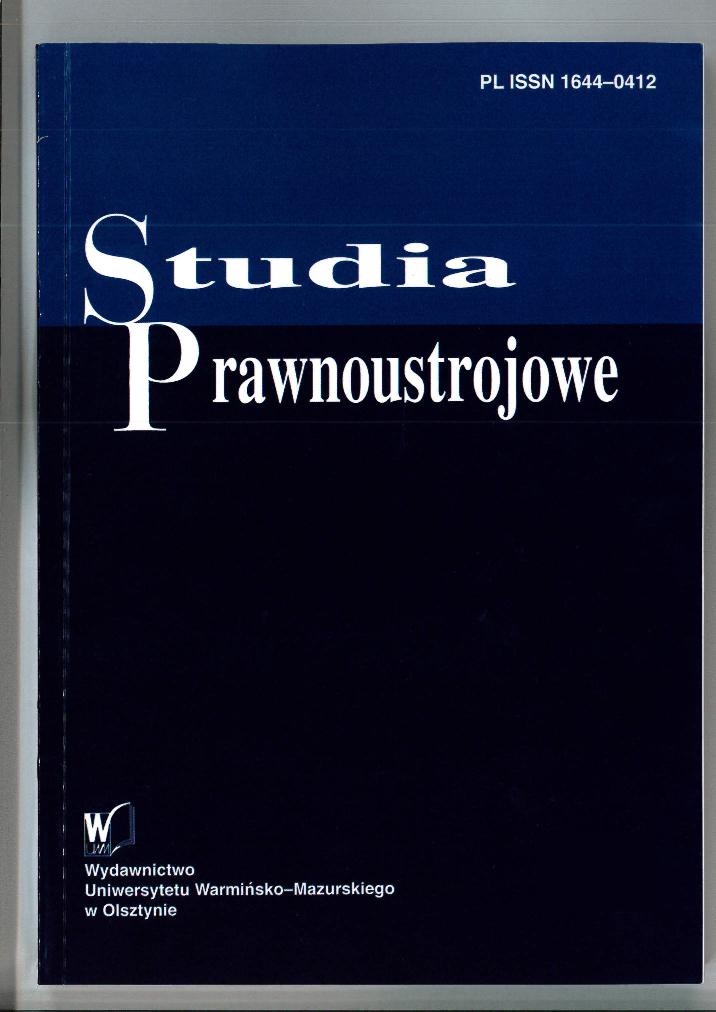
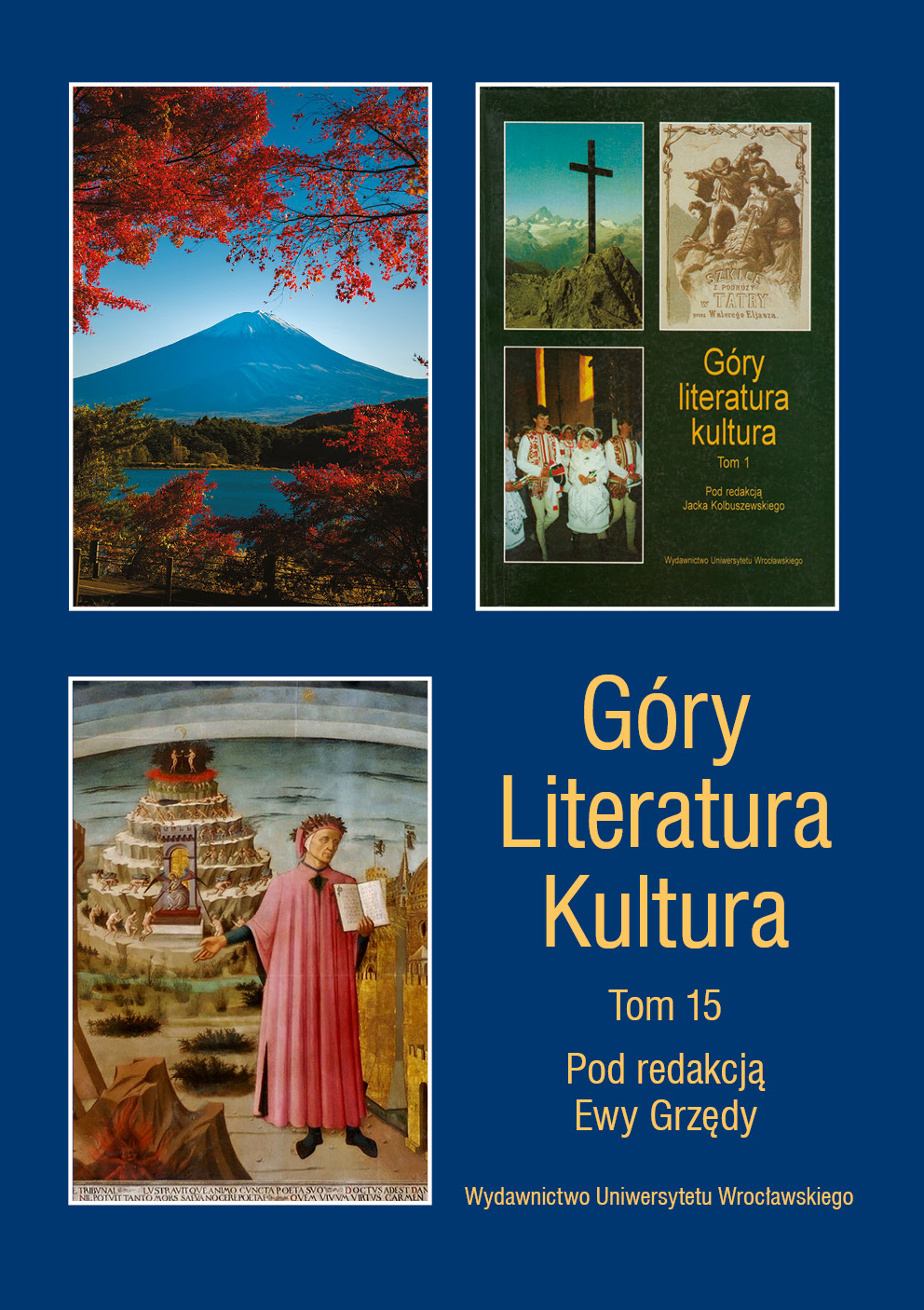
Keywords: Mount Ślęża; Wrocław; metropolis; periphery
More...